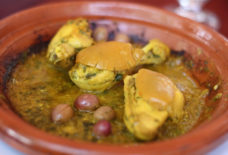What the Arab Papers Say About Mosque Controversy
Having largely ignored the story in recent weeks, the Arab press has begun to take note of the controversy over plans for Cordoba House, an Islamic centre near ground zero in New York, after Barack Obama spoke out on the issue. The commentary thus far has mixed consternation that the project is meeting so much opposition with caution about how those behind it should proceed.
Many commentators noted with concern rising Islamophobia in America. Hossam Eitani, writing in Dar al-Hayat, a pan-Arab daily, places the current bout of anti-Islamic feeling in a wider context of intolerance of minorities being championed by the tea-party movement:
“Some key figures in the Republican Party, such as former vice-presidential candidate, Sarah Palin and former Speaker of the House of Representatives, Newt Gingrich, have come out in support of those opposed to the construction of mosques. The Tea Party movement supports them because it backs the Republican Party and is counting on a majority of Americans to contribute to the movement’s religious, social and racist chauvinism. The group began by targeting Mr Obama and his social programme. It did everything possible to hinder his healthcare reforms. It has gone on to support Arizona’s racist immigration law, designed to prevent Latin American immigration to America. Now it is taking an active role campaigning against building mosques.”
Some are concerned about what this populism means for America’s democracy. In Jordan’s al-Ghad newspaper, Yasser Abu Halala argues that America must choose what it wants New York to symbolise—war with the Islamic world or the integration of the country’s Muslims:
“A rational person would prefer to build rather than tear down, but whoever said that public opinion is rational and democracy not fragile?”
But other influential figures have suggested that the issue can be viewed in a different light. Writing in Okaz, a Saudi daily paper, Hani Naqshabandi uses the fact that the Cordoba Initiative, the project’s backer, was granted building permission by New York’s local authorities to hold up America as an example for Arab nations:
“In the Arab world, freedom makes way for security. We have become overly paranoid about everything. Look at the story of this mosque that is set to be built in the financial capital of America. America was burnt by the fire of extremism in its own backyard when it was attacked by Islamic extremists. It is both the number one target for religious extremism and the leading nation opposing that extremism. But still it has overcome its fears by allowing Muslims to build the mosque.”
Other prominent Arab voices suggested that, in the face of so much public resentment, it might be better to build the mosque elsewhere, as Salama Ahmed Salama, a moderate Egyptian columnist for the independent daily al-Shorouk, wrote:
“I do not think that President Barack Obama’s intervention supporting the construction of a mosque and Islamic centre near the site of the World Trade Centre in New York… was prudent or wise for several reasons. While it was based on the principle of defending freedom of worship in America and the rights of Muslims to practise their religion, the fallout from the campaigns inciting hatred against Muslims will be greater than the symbolic significance of his decision.”
“In my opinion, it is better for the Muslims of New York to build their mosque somewhere else, far away from this American commotion and harm. Muslim groups are already beginning to complain of growing American hostility towards them….”
More controversially, Abd Al-Rahman Al-Rashed, a regular contributor to Saudi-owned London-based daily Al-Sharq al-Awsat and the managing editor of the Saudi pan-Arab news channel al-Arabiya, argued in an article entitled “A mosque or a symbol of destruction?” that the media has blown the issue out of proportion. According to Mr al-Rashed, there is little Muslim demand for a mosque to be built near ground zero:
“What Americans don’t understand is that the battle with the terrorists behind 9/11 is not their fight, but rather a battle for Muslims, as over twenty Islamic states struggle against terrorism. Some Muslims will consider the construction of a mosque there [by Ground Zero] as a commemoration and immortalization of what the terrorists, who committed their crime in the name of Islam, did. I don’t think that the majority of Muslims want to build a symbol or a place of worship that could become a place for terrorists and their Muslim followers to take pride in. Or a building that could become a shrine of hatred against Islam that turns public opinion against it, as seems to be the case at the moment, with claims that a mosque is being built on the bodies of three thousand dead Americans, buried alive as some people shout “Allahu Akbar”, the same call which will be heard from the mosque. It is a false battle; […] there are no devoted Muslims who want a place of worship there.”
Mr al-Rashed’s article met with criticism in a popular Emirati publication, Al-Khaleej, where Habib al-Sabegh writes a scathing response:
“Raising ideas of this kind is harmful and irrational. What Mr al-Rashed has apparently missed is that, through his article, he is actually linking the mosque and terrorism. This contrived link, based on irrational and illogical preconceived notions, deepens the stereotypes against Islam and Muslims in the collective memory of the other. Islam is not “al-Qaeda” and Muslims are not Osama bin Laden.”
The Economist



